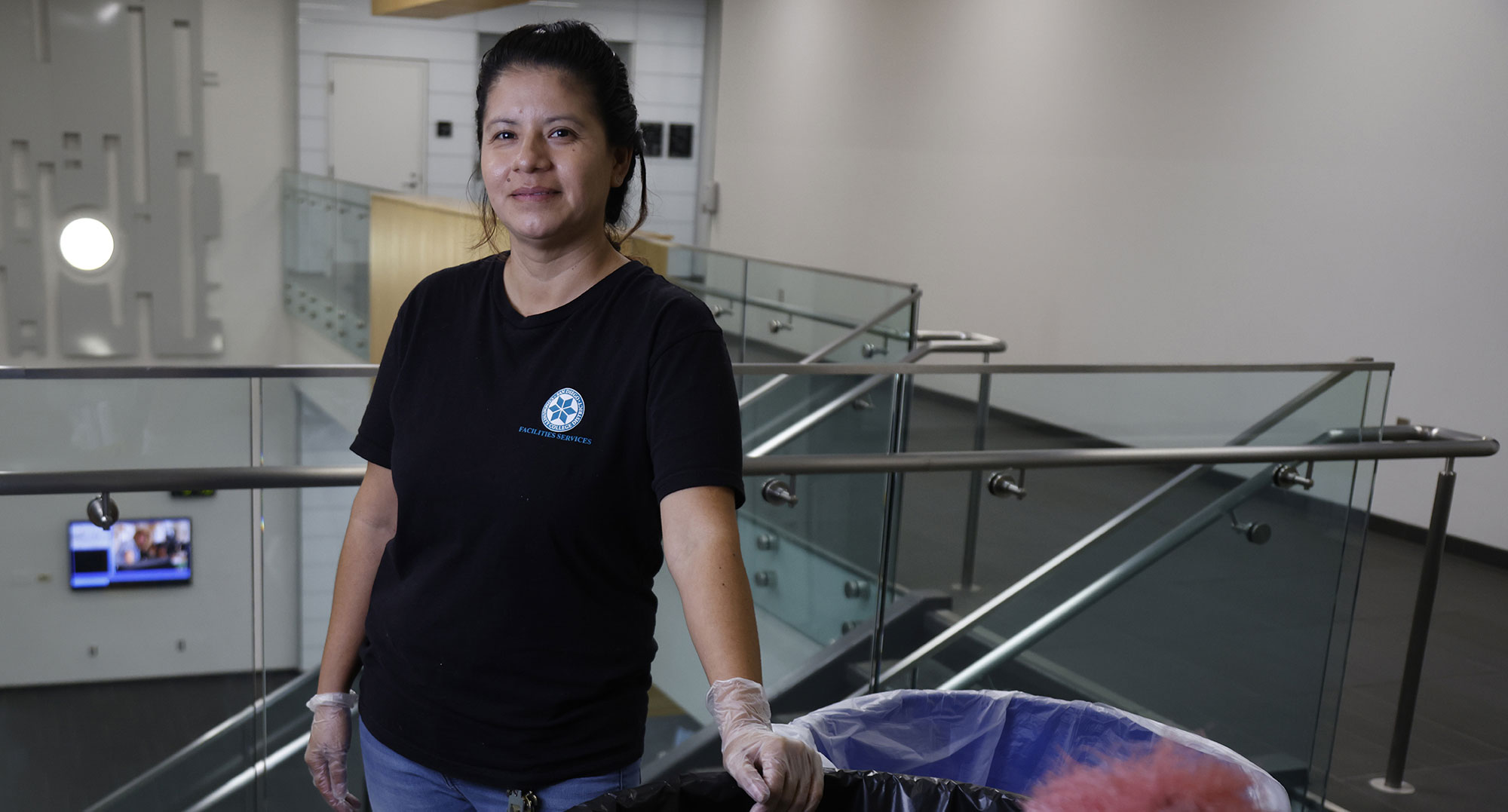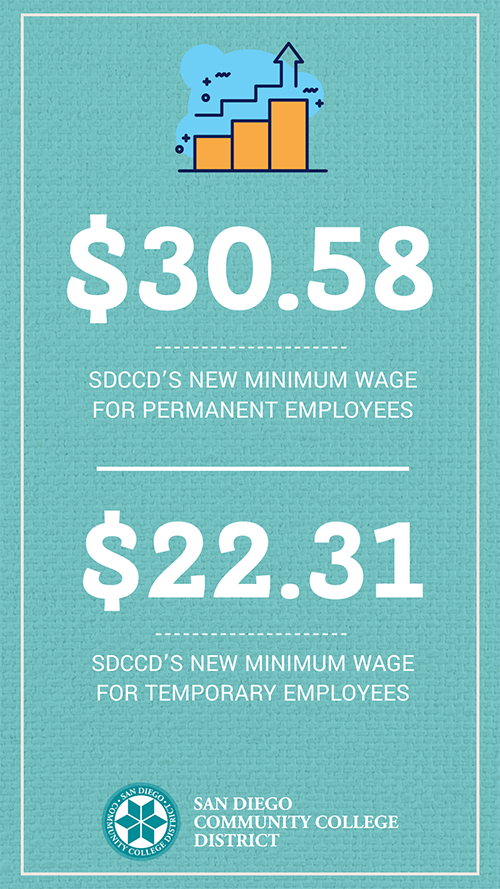
Edith Rangel is one of 250 permanent employees who will benefit from an increase in the district’s minimum wage to $30.58. Previously, it was $22.13 (SDCCD photo).
District boosts minimum wage to over $30 per hour
January 24, 2024 |
With the cost of living continuing to rise in one of America’s most expensive cities, the San Diego Community College District has boosted the minimum wage for all permanent employees to $30.58 per hour ― an amount that is nearly twice the state’s minimum wage.
 The unprecedented increase, which became effective January 1 and applies to approximately
250 employees who previously earned less than the new amount, ensures that all SDCCD
employees are paid a living wage as defined by the Massachusetts Institute of Technology’s
Living Wage Calculator. In addition, minimum wages for temporary employees have been
increased to $22.31 per hour.
The unprecedented increase, which became effective January 1 and applies to approximately
250 employees who previously earned less than the new amount, ensures that all SDCCD
employees are paid a living wage as defined by the Massachusetts Institute of Technology’s
Living Wage Calculator. In addition, minimum wages for temporary employees have been
increased to $22.31 per hour.
According to MIT, two working adults raising two children in the San Diego metropolitan area need to make $30.58 per hour to support themselves and their family. A single adult with no children must earn $22.31 to support themselves.
“We recognize the dignity of every individual in our community and the value of their work,” said SDCCD’s Acting Chancellor Gregory Smith. “As the costs of housing and living in San Diego have increased significantly in recent years, this investment safeguards against our employees falling into housing insecurity and relying on public services.”
Under the change, permanent full-time employees now earn a minimum of $63,606 annually; temporary full-time employees now earn a minimum of $46,404 annually.
Employees welcomed the wage adjustment.
“This is a much appreciated move,” said maintenance worker David Barragan, 32, a single father raising a teenage daughter who has been with the district for 10 years. “I was barely getting by, even working two jobs.”
Maintenance employee Edith Rangel feels the same way. She and her husband are raising two children, 5 and 9 years old, and often found themselves struggling to pay their bills. “I’m excited and I’m grateful,” Rangel said. “This will help my family and this will help me.”
The increase, agreed to in partnership with the district’s labor unions, will cost the SDCCD $1.5 million in the current fiscal year, but the amount decreases in subsequent years as the affected employees in coming years would have moved up on the previous pay scale through step increases anyway. The cost will be borne by deducting $1.5 million from new revenue coming from the state to community college districts through an annual cost of living allowance.
“We know of no other public or school agency that has done this, and we believe it is important to lead by example,” Smith said. “The professionals serving the educational needs of our local communities deserve a wage which allows them to live in our community and meet their basic needs.”
Smith noted that lower-wage employees aren’t the only people who are being impacted by the change.
“This investment benefits our students directly by ensuring we attract and retain highly skilled people in every job and demonstrating every job is critical to our mission of serving our local communities,” Smith said.
SDCCD Job Opportunities
Media note: On December 14, the SDCCD Board of Trustees announced its selection of Acting Chancellor Gregory Smith as the SDCCD’s permanent chancellor. Smith’s appointment is pending Board approval of his employment contract at the next Board meeting on January 25.